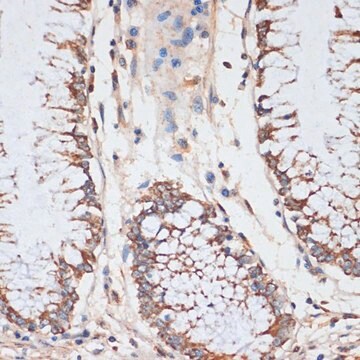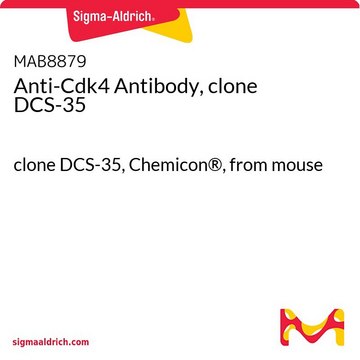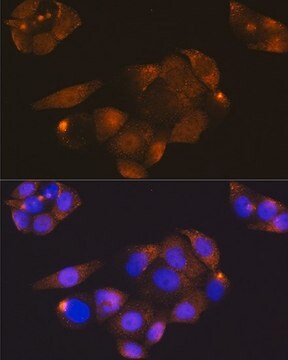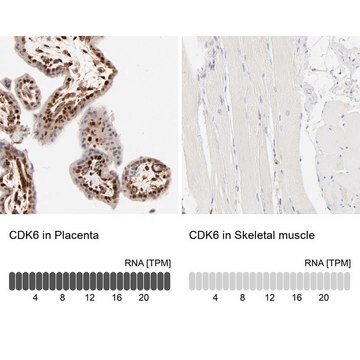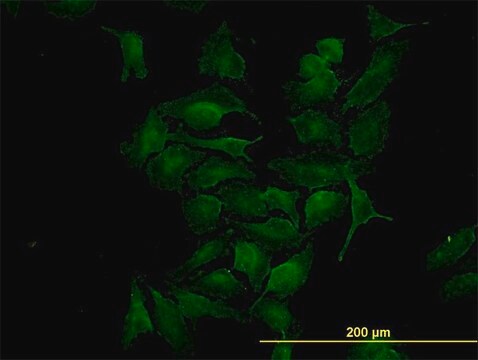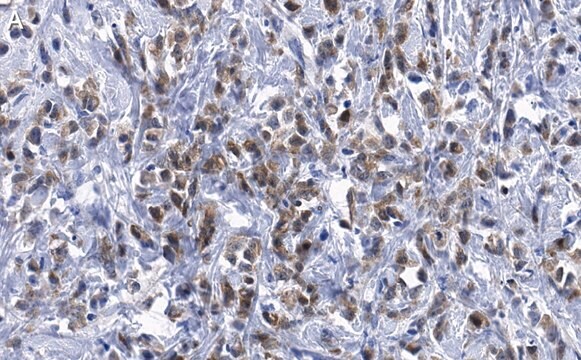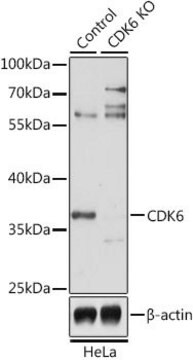C8218
Monoclonal Anti-Cdk4 antibody produced in mouse
clone DCS-31, ascites fluid
About This Item
Prodotti consigliati
Origine biologica
mouse
Coniugato
unconjugated
Forma dell’anticorpo
ascites fluid
Tipo di anticorpo
primary antibodies
Clone
DCS-31, monoclonal
PM
antigen 33 kDa
contiene
15 mM sodium azide
Reattività contro le specie
rat, mouse, human
tecniche
immunocytochemistry: suitable
immunoprecipitation (IP): suitable
microarray: suitable
western blot: 1:1,000 using a cultured human tumor cell line extract
Isotipo
IgG2a
N° accesso UniProt
Condizioni di spedizione
dry ice
Temperatura di conservazione
−20°C
modifica post-traduzionali bersaglio
unmodified
Informazioni sul gene
human ... CDK4(1019)
mouse ... Cdk4(12567)
rat ... Cdk4(94201)
Descrizione generale
Specificità
Immunogeno
Applicazioni
- immunoprecipitation of human melanoma cell line.
- immunofluorescence of fibrosarcoma cells.
- western blot analysis
- immunofluorescence
- immunohistochemistry
Azioni biochim/fisiol
Esclusione di responsabilità
Non trovi il prodotto giusto?
Prova il nostro Motore di ricerca dei prodotti.
Raccomandato
Codice della classe di stoccaggio
10 - Combustible liquids
Classe di pericolosità dell'acqua (WGK)
WGK 3
Punto d’infiammabilità (°F)
Not applicable
Punto d’infiammabilità (°C)
Not applicable
Certificati d'analisi (COA)
Cerca il Certificati d'analisi (COA) digitando il numero di lotto/batch corrispondente. I numeri di lotto o di batch sono stampati sull'etichetta dei prodotti dopo la parola ‘Lotto’ o ‘Batch’.
Possiedi già questo prodotto?
I documenti relativi ai prodotti acquistati recentemente sono disponibili nell’Archivio dei documenti.
Articoli
Quantitative and qualitative western blotting to validate knockdown by esiRNA. Sigma-Aldrich.com
Il team dei nostri ricercatori vanta grande esperienza in tutte le aree della ricerca quali Life Science, scienza dei materiali, sintesi chimica, cromatografia, discipline analitiche, ecc..
Contatta l'Assistenza Tecnica.